Reimagining Core @ UTEP
About
Reimagining Core @ UTEP is an institution-wide effort to enhance student engagement, learning, and success across all core curriculum component areas. Through the dedicated efforts of faculty, staff, students, and administrators, our mission is to leverage such engagement to aid students in developing the academic and professional competencies to be successful at and persist in their endeavors during their tenure at UTEP and beyond.
The Reimaging Core @ UTEP effort fulfills Goal 1, Initiative 2 of the UTEP Strategic Plan: Teaching, Learning, and Student Experience — incorporating immersion opportunities specific to our region and providing early opportunities for engaged and active learning throughout the foundational academic experience of the core curriculum.

Reimagine Your Course
Contact us to learn more about revisiting your core curriculum or joining the community of Reimagining Core Fellows. For additional resources related to innovation in teaching and learning, visit our colleagues at the Institute for Scholarship, Pedagogy, Innovation and Research Excellence (InSPIRE). InSPIRE is located in the College of Education building, room 105. Toni Blum, Ph.D. Toni Blum, Ph.D. Vice Provost for Curriculum Effectiveness and Improvement Email: tlblum@utep.edu |
 Brad Cartwright, Ph.D. Brad Cartwright, Ph.D. Associate Professor of Instruction, College of Liberal Arts; Director of Center for History Teaching and Learning Email: bjcartwright@utep.edu |
Reimagining Core Fellows
Fellows participating in the Reimagining Core @ UTEP effort will receive the following:
- Sustained support from the project leadership team, including resources provided by InSPIRE, the Center for Community Engagement [CCE], and the Miner Learning Center, among other campus entities
- Direct support for assessing and evaluating course outcomes
- Financial support (e.g., partial summer salary) both for individuals contributing to the course redesign as well as the course lead
- Monies for course redesign supplies, meeting space/refreshments, etc.
- Campus-wide recognition at InSPIRE events
Interested in Reimagining Your Course?
Please contact Toni Blum ( tlblum@utep.edu) or Christina D'Arcy (cebond@utep.edu).
Current Fellows
Biological Sciences
 Christina E. D’Arcy, Assistant Professor
Christina E. D’Arcy, Assistant Professor
 Thomas McCabe, Assistant Professor
Thomas McCabe, Assistant Professor
 Joshua J. Mead, Doctoral Teaching Assistant
Joshua J. Mead, Doctoral Teaching Assistant

Chemistry
Elizabeth Day, Assistant Professor
Mahesh Narayan, Professor
Computer Science
 Salamah Salamah, Professor
Salamah Salamah, Professor
 Oralia Loza, Associate Professor
Oralia Loza, Associate Professor
English for Speakers of Other Languages (ESOL)
Luz M. Garcia-Rochin, Lecturer, Assistant Director of ESOL Program
Sabrina Mossman, Assistant Professor of Instruction
Laura E. Mendoza, Assistant Professor of Instruction
History
Brad Cartwright, Associate Professor of Instruction
Ernesto Chávez, Professor
Susan Stanfield, Associate Professor
Jason Martin, Doctoral Teaching Assistant
Mathematics
 Larry Lesser, Professor
Larry Lesser, Professor
 Samantha Patterson, Instructor
Samantha Patterson, Instructor
Music
 Lindsey Macchiarella, Assistant Professor
Lindsey Macchiarella, Assistant Professor
 Shaun Mahoney, Lecturer
Shaun Mahoney, Lecturer
Physics
 Jose Leo Bañuelos, Assistant Professor
Jose Leo Bañuelos, Assistant Professor
 Eunja Kim, Assistant Professor
Eunja Kim, Assistant Professor
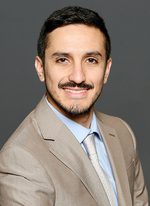 Jorge Munoz, Assistant Professor
Jorge Munoz, Assistant Professor
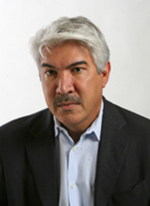 Ramon Ravelo, Associate Professor
Ramon Ravelo, Associate Professor
 Yun-Pil Shim, Assistant Professor
Yun-Pil Shim, Assistant Professor
Political Science
 Todd Curry, Associate Professor
Todd Curry, Associate Professor
 Rebecca Reid, Associate Professor
Rebecca Reid, Associate Professor
 José Villalobos, Professor
José Villalobos, Professor
Rhetoric and Writing Studies
 Esther Solis Al-Tabaa, Senior Lecturer
Esther Solis Al-Tabaa, Senior Lecturer
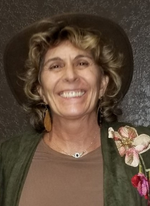 Judith Fourzan, Assistant Professor of Instruction
Judith Fourzan, Assistant Professor of Instruction
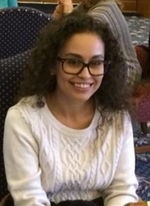 Rebekah Grado, Lecturer
Rebekah Grado, Lecturer
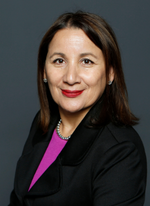 Maria Isela Maier, Assistant Instructor
Maria Isela Maier, Assistant Instructor
 Jonathan Nehls, Lecturer
Jonathan Nehls, Lecturer
 Bibhushana Poudyal, Assistant Instructor
Bibhushana Poudyal, Assistant Instructor
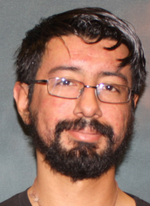 Marco Rodriguez, Lecturer
Marco Rodriguez, Lecturer
 Lauren Rosenberg, Professor
Lauren Rosenberg, Professor
 Luba Shafirovich, Lecturer
Luba Shafirovich, Lecturer
Theatre and Dance
 Melissa Melpignano, Assistant Professor of Instruction
Melissa Melpignano, Assistant Professor of Instruction
Organismal Biology Laboratory (BIOL 1108)
Team Members: Elizabeth J. Walsh, Thomas McCabe, Christina E. D’Arcy, and Joshua J. Mead
Abstract: The lab redesign aims to increase active- and place-based learning components through the development of two modules. The first module highlights vertebrate biodiversity and includes student driven investigations of community assemblages in the Chihuahuan desert.
Students will develop a food web and learn about species interactions. Students will then analyze data from citizen science databases (e.g., ebird, iNaturalist) to see how their community may be impacted by a major environmental stressor. Each student team will present their analyses in a capstone format. The second module involves the redesign of protist and fungi labs with a focus on the desert soil crusts which are primarily composed of these taxa. Students will learn about biological functional groups (i.e., species that perform common function) and ecosystems services (nutrient cycling, soil stabilization). Team projects will include a science communication component (e.g., podcasts, infographics, twitter posters) geared to hikers and other outdoor enthusiasts and made available at local state parks and recreational areas. Read More
Impact at Scale: This project will impact approximately 650 students per year. Thirteen sections of BIOL 1108 are commonly offered in fall semesters and 15 sections in spring semesters.
General Chemistry (CHEM 1305/1306)
Team Members: Elizabeth Day, Mahesh Narayan
Abstract: This introductory chemistry course sequence is required for many science and engineering majors. The course redesign will feature an evidence-based curriculum that was originally developed using a design research approach that focuses on scaffolded progressions around four core ideas: structure-property relationships, electrostatic bonding and interactions, energy, and change and stability.
The courses emphasize causal mechanistic reasoning to help students move beyond memorization of facts and rote calculations to be actively engaged in explaining how and why chemical phenomena occur. The redesign of these Core Courses at UTEP has been adapted to use active learning pedagogies (such as project-based learning), student-centered policies (hy-flex attendance), and place-based phenomena as some of the driving questions behind each module. These place-based phenomena are intended to center the community’s knowledge of chemistry through a discussion of how the core ideas covered in the course connect to the chemistry of events and places that have shaped the borderland, such as the Manhattan Project and the ASARCO Smelter. Read More
Introduction to Computational Thinking (CS 1310)
Team Members: Salamah Salamah, Mary K Roy, Oralia Loza
Abstract: The redesigned course employs case studies and data sources focused on health disparities to facilitate problem definitions and the validation of produced solutions. The module-based course was offered in the traditional face-to-face instructional mode as well as synchronized online. The course was redesigned and taught jointly by a faculty from the Department of Computer Science and a faculty from the Department of Public Health Sciences.
Impact at Scale: The pilot course was offered in the fall 2021 semester and continued in fall 2022. A total of 27 students completed the fall 2021 piloted course.
Environmental Science Laboratory (ESCI 1101)
Team Members: Elizabeth J. Walsh, Kevin Floyd, Patrick D. Brown, Michelle A. Aranda Barroso
Abstract: The lab redesign involves increasing the active- and place-based learning components of several labs through the development of two modules, including adding the underlying theme of climate change into all labs. The first module highlights biodiversity on campus and includes student design of hummingbird/butterfly gardens for underutilized spaces on campus. Students will learn about local biodiversity by studying interactions between plants and animal pollinators.
Students will mine data from citizen science databases (e.g., ebird, iNaturalist) and use them to develop lists of target plants to attach pollinators. Each student will choose a project and be part of a team that will develop and implement the plan, monitor diversity using apps, and promote the project through outreach. Students will also contribute to the databases through their monitoring activities. The second module is focused on the intersection between human population growth and climate change as environmental stressors. Students will use web-based tools (e.g., google maps, GIS apps) to map population growth of El Paso, development patterns, and environmental parameters (e.g., temperature, precipitation, groundwater). Team projects will include students presenting a challenge and presenting a solution that could be feasibly implemented in our region. Read More
Impact at Scale: This project will impact approximately 200 students per year. Six sections of ESCI 1101 are commonly offered in fall semesters and 4 sections in spring semesters.
Expository English Composition for Speakers of ESL (ESOL 1311) and Research and Critical Writing for Speakers of ESL (ESOL 1312)
Team Members: Luz M. Garcia-Rochin, Sabrina Mossman, Laura E. Mendoza
Abstract: Writing and Reading for Speakers of English as a Second Language (ESOL 1309) is an introductory course designed to provide ESOL students with the basic skills they need to succeed in the required first-year composition course (1311). Its main goal is to introduce students to the writing process and conventions required to write college-level essays coherently and cohesively. While the college experience is new to all UTEP students, for UTEP’s ESOL students there is the added challenge of studying in a new country. One way to support students’ navigation of this new learning environment is by creating learning communities.
To address this, we propose constructing a learning community with one UNIV 1301 course, which will maximize the learning outcomes along with UTEP Edge’s philosophy through a variety of high-impact experiences both in and out of the classroom, stimulating their UTEP Edge awareness. This initial redesign will include one section of ESOL 1309 (24 students enrolled for Fall 2023). The main innovative pedagogies infused into the redesigned course include Learning Communities, Cultural Wealth Model (Yosso, 2005), and Validation Theory (Rendon, 1994). These frameworks are culturally responsive for ESOL students and help them better navigate their new experiences as college students (Johnson, M.D. et al., 2023). We propose that as part of a learning community, students will gain confidence, develop new skills, and engage in a series of activities that will positively impact them inside and outside their college classrooms. Read More
History of US to 1865 (HIST 1301) and US History since 1865 (HIST 1302)
Team Members: Brad Cartwright, Ernesto Chávez, Susan Stanfield, Jason Martin
Abstract: History of the U.S. to 1865 and HIST 1302: History of the U.S. since 1865 offer broad surveys of American history to an average of 2,300 UTEP students every fall and spring semester. Moving beyond the coverage model and traditional retellings of America’s past, faculty in the Department of History will reimagine these core curriculum courses by emphasizing three critical areas: diversity, cross-disciplinary skills, and historical thinking. In terms of diversity, our reimagining will highlight multiple historical perspectives, inclusive histories and shared pasts, a sense of belonging, and community engagement.
Cultivating cross-disciplinary skills – such as primary source analysis, critical thinking, digital literacy, and research, writing, and argumentation – represent another major emphasis for our core redesign. And, lastly, our reimagining will feature historical thinking concepts including, but not limited to, change over time, causation, connections between the past and the present, and historical context. Based on best practices from the scholarship of history teaching and learning, Cartwright, Chavez, Martin, and Stanfield will build a database of primary and secondary sources, assessments, instructional videos, podcasts, and other tools that instructors in the History Department can incorporate into their US History survey courses. Integrating these resources into the core curriculum will reinforce elements of the University’s Strategic Plan, such as engaging the community, promoting diversity and inclusion, and providing students with high impact learning experiences that will prepare them for a variety of disciplinary contexts and career opportunities. Read More
Mathematics for Social Sciences (MATH 1320)
Team Members: Samantha Patterson and Larry Lesser
Abstract: MATH 1320 is a precalculus course for liberal arts, business, and other non-science majors, covering a potpourri of topics (with increased alignment to client department needs and the Texas Core Curriculum), including: functions, systems of linear equations(inequalities), financial mathematics, sets, expected value, central tendency, and probability.
The redesign aims to improve relatability by using best practices in pedagogy, and curriculum to increase: real-world connections of content, student choice of tools for learning, engagement and motivation, and opportunities for reflection. Innovative pedagogies infused include technologies (such as graphing utilities, statistical software, systems of linear equations software), short engaging videos that can support multimodal learning, use of educational games/songs, more authentic data sets, opportunities for projects or group work, and meaningful mathematical connections to students’ lived experiences (e.g., finances). These tools are being made accessible to support instructors with varied backgrounds in gently growing their pedagogical repertoire to incorporate them in their teaching. Also, refinements to course policies and structures have been informed by best practices in the literature on learning and on equity. The redesign should improve instructional consistency across sections by offering templates, resources, and tools that could help face-to-face, co-requisite, flipped, asynchronous online, and Hy-Flex modalities of MATH 1320, and even support instruction in other courses as well. A paper on the redesign process was presented at the 2023 conference of the American Association for Teaching & Curriculum (AATC) and one or more journal articles are expected to be accepted or published in 2024. Read More
Impact at Scale: MATH 1320 is taken by approximately 1500 students in over 50 sections each calendar year.
Music Appreciation (MUSC 1324)
Team Members: Lindsey Macchiarella, Shaun Mahoney
Abstract: The aim of this project is to increase student engagement, add considerable variety to the curriculum, and to provide a unique opportunity for students to observe the process of music making, from score, to stage, to final performance.
Impact at Scale: This project will impact approximately 240 students per year.
Jazz to Rock (MUSL 1327), History of Jazz (MUSL 3327), and Social History of Rock (MUSL 3326)
Team Members: Shaun Mahoney
Abstract: The redesign will focus on specific events, artists, innovations, and social impact of Jazz and Rock music. The redesign involves integrating zero-cost learning materials. All course materials will be provided in Blackboard course shells. Quizzes, tests, essays, and discussion assignments will be based on open educational resources.
Impact at Scale: MUSL 1327 typically enrolls over 100 students, MUSL 3327 and MUSL 3326 both enroll 50 students, on average.
Introductory Mechanics (PHYS 2320)
Team Members: Jorge Munoz, Jose Leo Bañuelos, Eunja Kim, Ramon Ravelo, and Yun-Pil Shim
Abstract: The redesign integrates gamification aspects of the fundamental concepts that are covered in the course and involve social media components to improve the understanding of physics concepts. By integrating gamification, faculty aim to help students’ comprehension of physics concepts versus memorization of content.
Impact at Scale: PHYS 2320 is required for students majoring in the physical sciences in the College of Science. The Department of Physics typically offers 4 lecture-style sections per term (including summers) and students are required to also register for a 1-hour per week workshop session. The total number of students enrolled in all sections exceeds 1000 per year.
American Government and Politics (POLS 2311)
Team Members: José Villalobos, Rebecca Reid, Todd Curry
Abstract: The course redesign focuses on significant innovation in the substance and methods of teaching POLS 2311 as well as in developing resources and training for faculty colleagues to ease the process of adopting and applying the curriculum. Team members focus on four key pillars:
(1) Community Engagement– non-partisan community engagement activities, (2)Empathy and Ethical Leadership – building of effective empathic and ethical leadership skills, (3) Diversity and Antiracism – understanding how institutions and policies create and reinforce inequality across a variety of dimensions of diversity, and (4) Politics and Policy in Action – examining how politics shape and impact contemporary policy across a variety of spheres. Each of these pillars work synergistically with the others, creating a holistic and comprehensive learning environment to promoting student leadership, critical thinking, problem solving, communication, teamwork, social and personal responsibility, civic engagement, entrepreneurship, and community engagement skills. Read More
Impact at Scale: All students are required to take this course unless they enroll at UTEP with the equivalent course credit.
Rhetoric and Composition I (RWS 1301)
Team: Lauren Rosenberg, Judith Fourzan, Esther Solis Al-Tabaa, Rebekah Grado, Maria Isela Maier, Jonathan Nehls, Marco Rodriguez, Luba Shafirovich, Patricia Flores Hutson, Natalie Taylor, Bibhushana Poudyal, and Michael Noricks
Abstract: The course redesign emphasizes experiential learning opportunities, such as multimedia exploration, a self-study of students’ language experiences, and research into biases that impact students’ lives and learning.
Impact at Scale: All students are required to take this course unless they enroll at UTEP with the equivalent course credit. Approximately 95 sections are offered in the fall semester with slightly fewer sections offered each spring.
Rhetoric and Composition II (RWS 1302)
Team: Lauren Rosenberg, Judith Fourzan, Esther Solis Al-Tabaa, Rebekah Grado, Maria Isela Maier, Jonathan Nehls, Marco Rodriguez, Luba Shafirovich, Patricia Flores Hutson, Natalie Taylor, Bibhushana Poudyal, and Michael Noricks
Abstract: The course redesign involves writing about community issues (and in some classes interacting with community partners), and greater attention to research on a local level in hometown, on campus, and more broadly in students’ communities.
Impact at Scale: All students are required to take this course unless they enroll at UTEP with the equivalent course credit. Approximately 95 sections are offered in the fall semester with slightly fewer sections offered each spring.

 Elizabeth Day, Assistant Professor
Elizabeth Day, Assistant Professor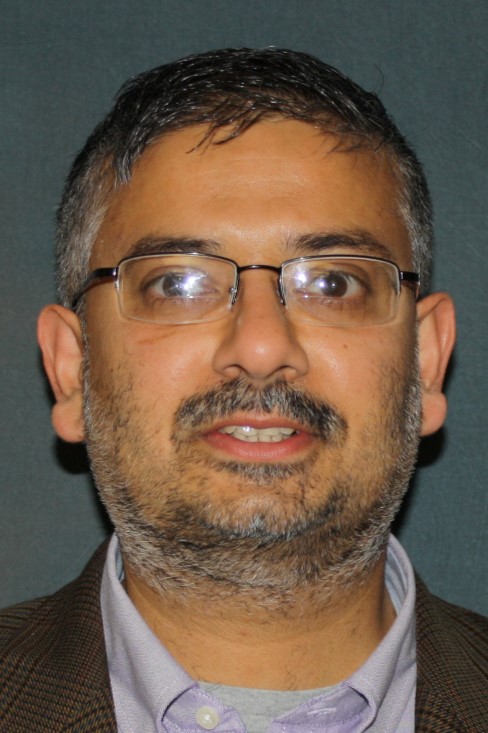 Mahesh Narayan, Professor
Mahesh Narayan, Professor
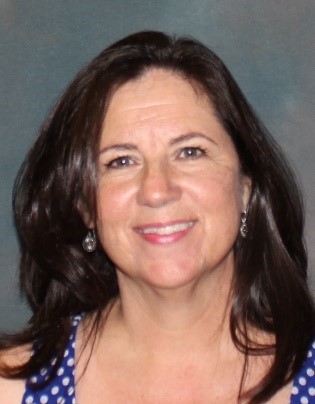 Sabrina Mossman, Assistant Professor of Instruction
Sabrina Mossman, Assistant Professor of Instruction Laura E. Mendoza, Assistant Professor of Instruction
Laura E. Mendoza, Assistant Professor of Instruction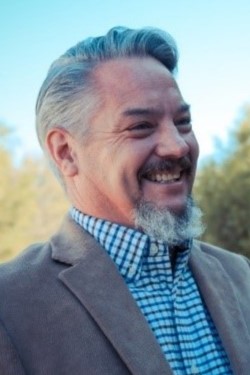 Brad Cartwright, Associate Professor of Instruction
Brad Cartwright, Associate Professor of Instruction Ernesto Chávez, Professor
Ernesto Chávez, Professor Susan Stanfield, Associate Professor
Susan Stanfield, Associate Professor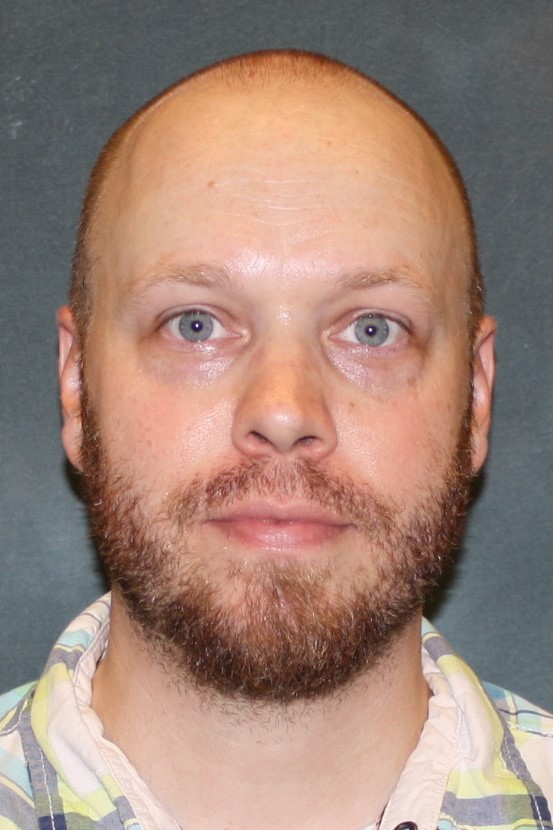 Jason Martin, Doctoral Teaching Assistant
Jason Martin, Doctoral Teaching Assistant


